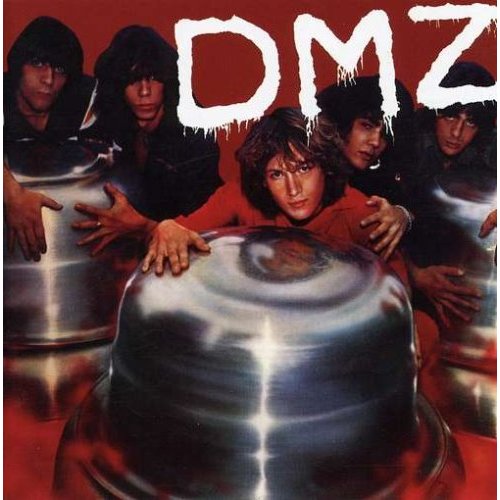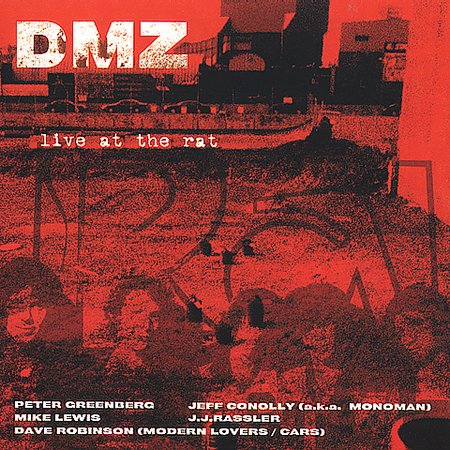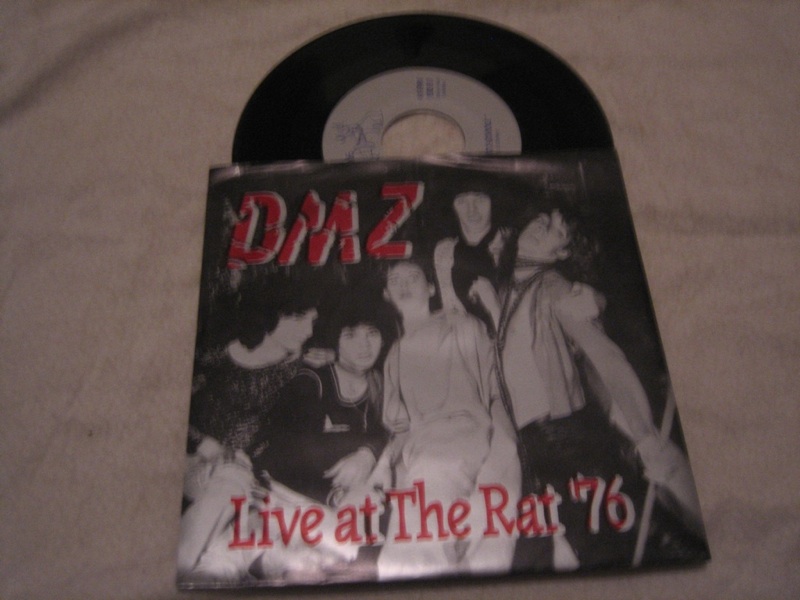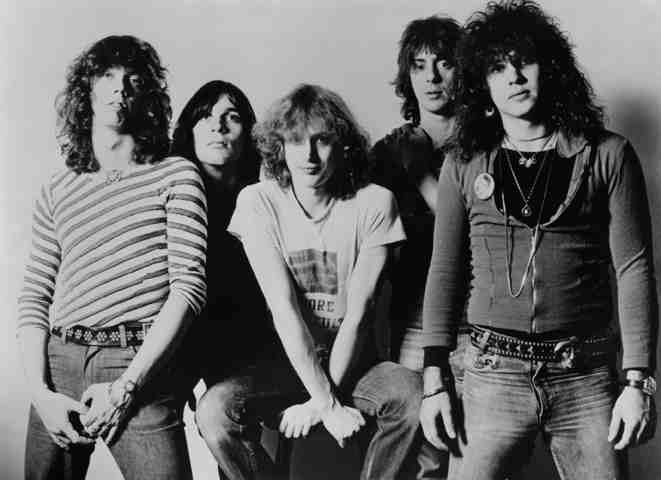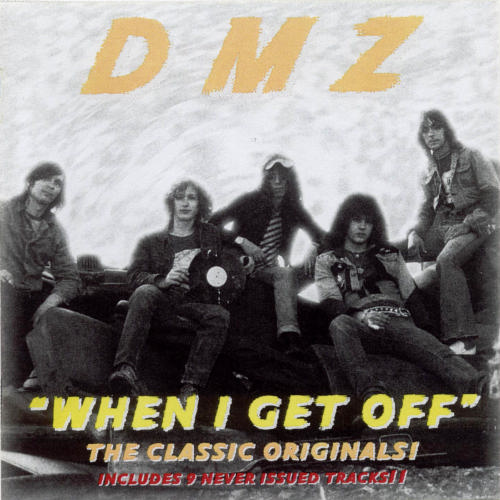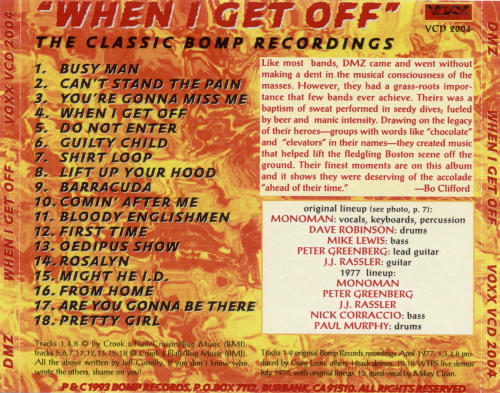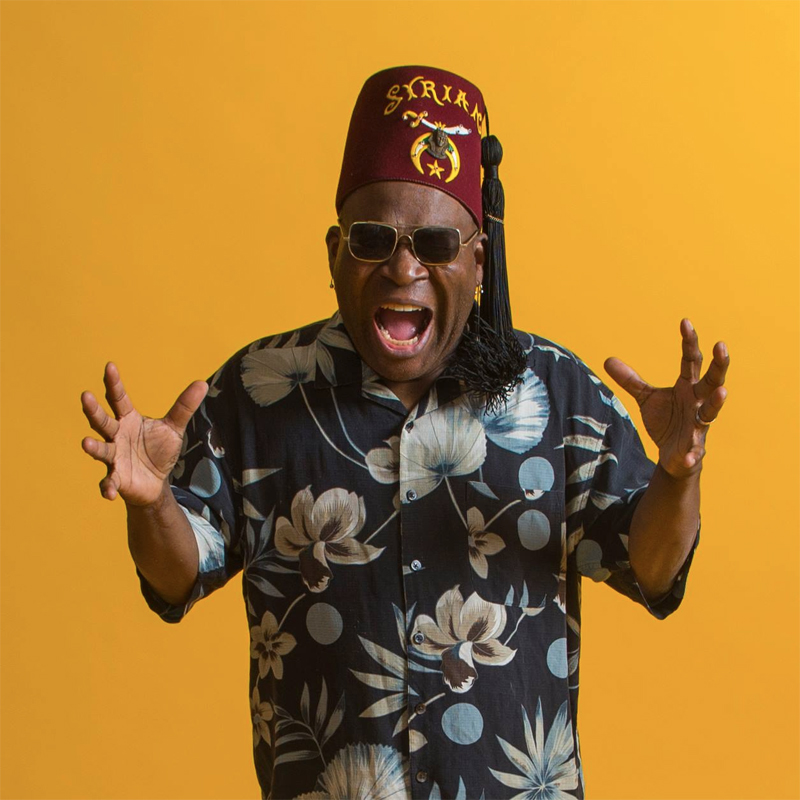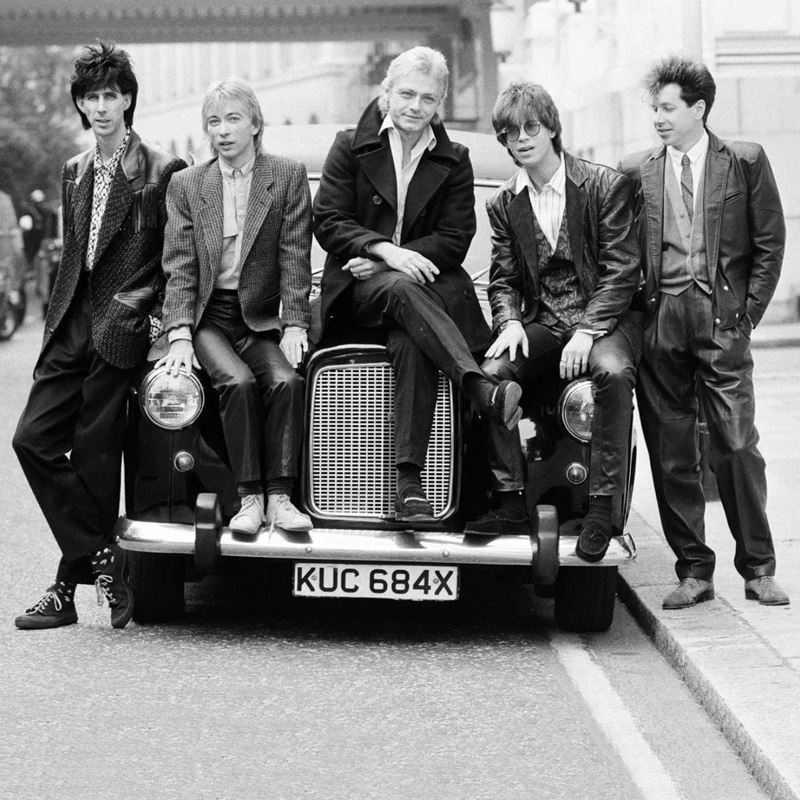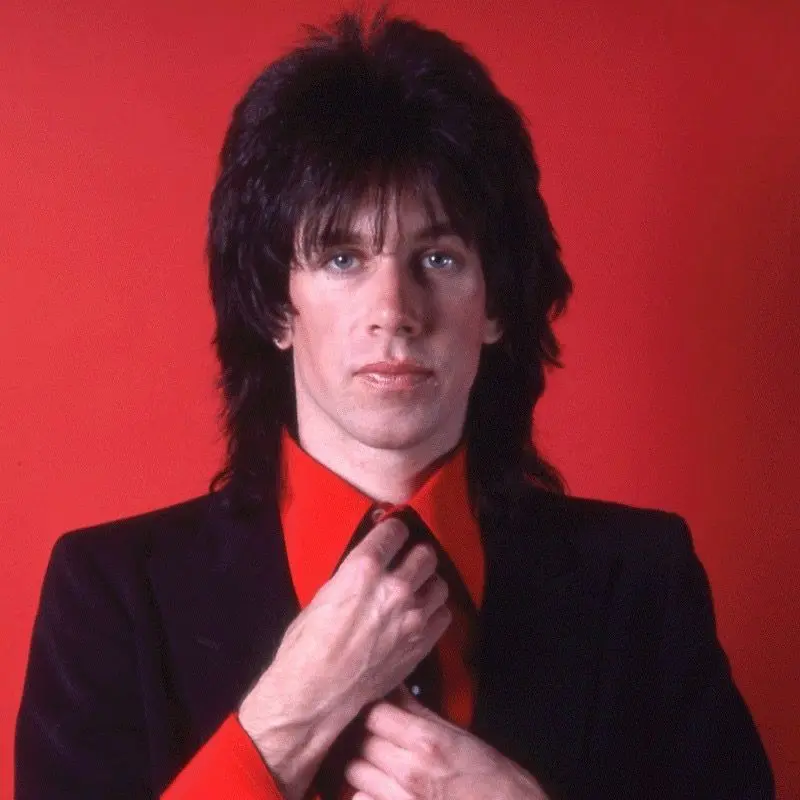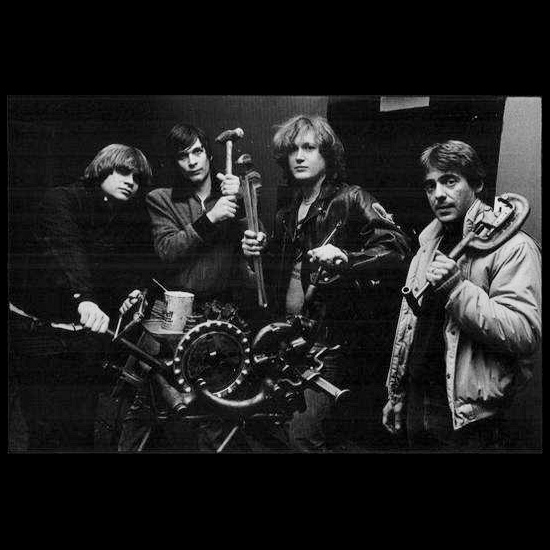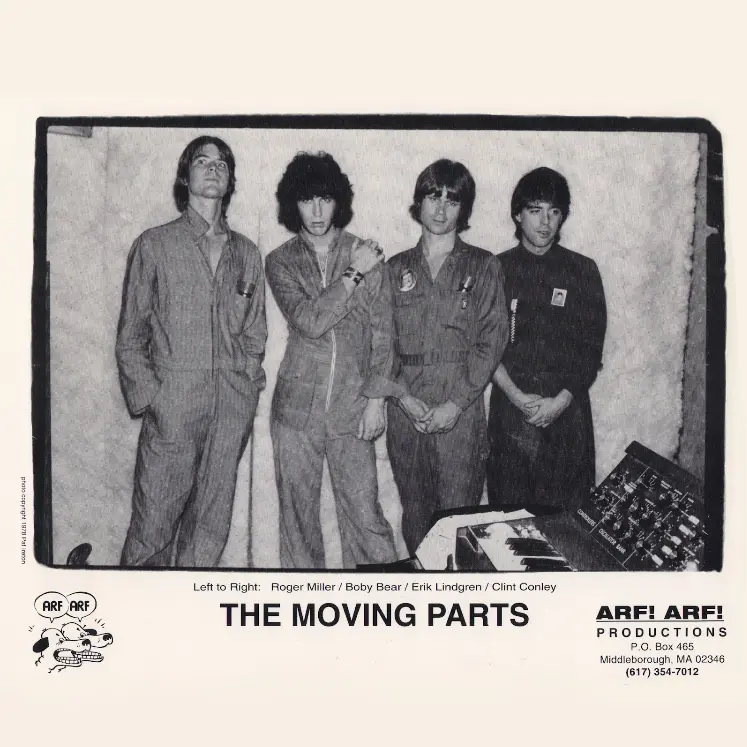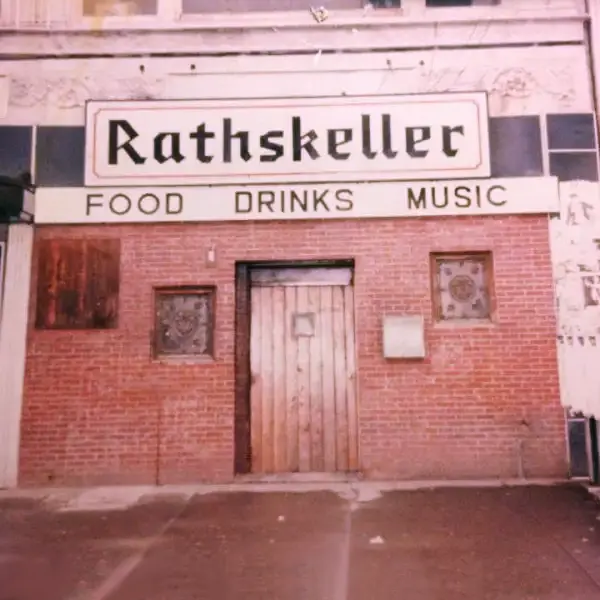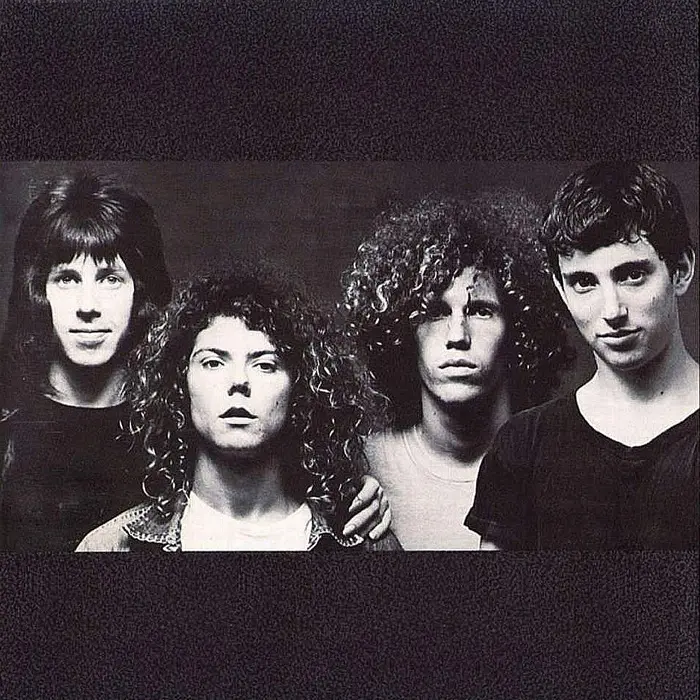DMZ
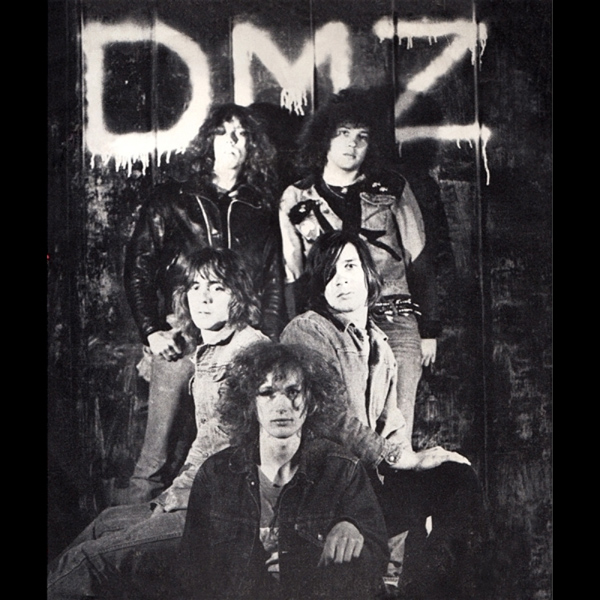
Boston’s late-‘70s rock scene exploded after a what’s now considered “big-bang” event: the release of Live at the Rat, a double-vinyl set recorded in 1976. From the seminal local bands on that album and their breeding ground, The Rathskeller in Boston’s Kenmore Square, a beachhead was established that would mark the city as a major source of new music for decades. And one of the first bands out of the gate was DMZ, which weighed in with a pair of originals written by their wildly excitable vocalist and organist Jeff Conolly, whom the world would come to know by his stage moniker Monoman.
The stage name is a clue to Conolly’s great musical love: the often-monaural rock ‘n’ roll recordings from the previous decade that were well-chronicled in Elektra Records’ famous Nuggets: Original Artyfacts from the First Psychedelic Era, 1965–1968 compilation album from ‘72. Mind-altering poppers from bands such as The Chocolate Watchband, Sonics, Pretty Things and Conolly’s beloved 13th Floor Elevators – fronted by the trippy legend Roky Erickson, whose “You’re Gonna Miss Me” DMZ covered on record and on stage regularly – were a cornerstone of their sound. The burgeoning ‘70s punk scene in which the group gestated toughened that approach behind the snarling guitars of Peter Greenberg and J.J. Rassler.
FORMATION, DEBUT EP
DMZ had been around for a while before Conolly joined the band, going nowhere fast with another singer, but that changed in 1975, when Conolly got an invitation from a fellow Boston University student to go to one of the band’s gigs and a rehearsal. After witnessing a nasty argument between the musicians whereupon their singer stormed off, he offered to do a song with them, choosing one of his favorites, “Search and Destroy.” Following an intense and explosive rendition of the Iggy & The Stooges classic, it was obvious to those in the room that DMZ had just been reborn; the band asked Connelly to stay. Over the next several months, he brought a wealth of fresh material to the group as they built up a local following with The Rathskeller as home base, earning DMZ a slot in the September ’76 recording of the club’s landmark album.
The Live at the Rat songs caught the attention of the fabled Greg Shaw, founder of one of the most important and famous indie labels of all time, Los Angeles-based Bomp! Records. The resulting four-song EP in 1977, which became DMZ’s definitive release, included the band’s classic remake of “You’re Gonna Miss Me” and the live favorite “Busy Man.” Anchored by Rick Corraccio and Paul Murphy on bass and drums, production was overseen by Craig Leon, who possessed ultimate punk cred for having produced The Ramones’ debut album the year before.
SIRE SIGNING, DEBUT ALBUM, DISBANDING, LATER ACTIVITY
Sire Records, which had signed The Ramones and had a powerhouse distribution deal with Warner Brothers, noticed the EP and contracted the band for an album, setting them up in Kingdom Sound Studios on Long Island with former Turtles Flo and Eddie as producers. Ultimately, the band disavowed the resulting DMZ LP as being unrecognizable to their sound, with the mix suppressing the dynamics and energy. Monoman complained that they had wanted a more primitive ‘60s sound but Flo and Eddie applied too much studio sheen.
While accusing fingers pointed back and forth, disappointment at Sire meant that there would be no offer for a sophomore release. For many, criticisms by the band and the label seemed harsh: “Mighty Idy” and the cover of The Sonics’ “Cinderella” were ferocious stompers that peeled back speaker laminate at high volume. The influence of rock ‘n’ roll greatness from Iggy Pop to Little Richard shrieked off the vinyl, which garnered airplay on college radio and received good marks in general from the few critics who took the time to notice. Those positive assessments weren’t enough to prevent malaise from taking hold in the ranks, however, and after gigging through most of 1978, DMZ had fallen apart by November.
Rassler eventually formed The Odds and Greenberg helped found The Savages behind punkish soul man Barrence Whitfield. The remaining trio of Monoman, Murphy and Corraccio formed the core of Lyres which, despite never scoring a major-label deal, found far greater success both in the US and Europe than their former outfit ever did. Posthumous releases helped shore up DMZ’s interrupted legacy, including Relics, a 1981 Voxx/Bomp! collection of the four-song EP with some 1977 demos, 1986’s Live at Barnaby’s (recorded at the Methuen, Massachusetts club in June ’78) and 2001’s Live at the Rat, which combines outtakes from ’76 with songs recorded at a DMZ reunion session in ‘93.
One footnote: Drummer David Robinson of The Modern Lovers powered the skins in an early lineup of DMZ until he departed in 1976 for The Cars. In fact, he was the man behind the kit on the Live at the Rat recordings from that year.
(by Carter Alan)
Carter Alan is a former WBCN deejay now heard on WZLX-FM in Boston. He’s the author of Outside is America: U2 in the U.S. (Faber & Faber, 1992), U2: The Road to Pop (Faber & Faber, 1997), Radio Free Boston: The Rise and Fall of WBCN (University Press of New England, 2013) and The Decibel Diaries: A Journey Through Rock in 50 Concerts (University of New England Press, 2017).

